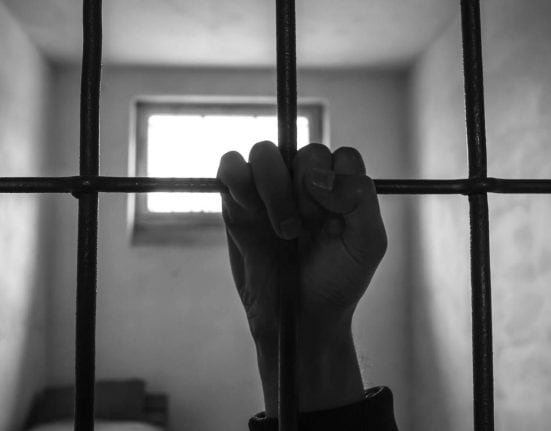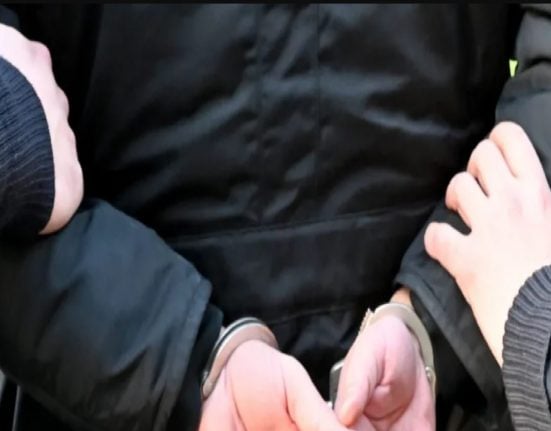Human rights organizations have prepared a report on the situation of children and mothers in prison for publication at the 91st session of the UN Committee on the rights of child.
Representatives of the initiative groups “Open Line” and “House of Human Rights” from Uzbekistan, the Association “Human Rights in Central Asia” (AHRCA, France) with the support of the International Partnership for Human Rights (IPHR, Belgium) took part in the work on the document.
The focus of the study was the situation in two penal colonies. In particular, human rights activists considered the situation of children born by female prisoners in the colony No.21, thanks to monitoring and interviews conducted by Open Line and AHRCA with 20 people (including prisoners, human rights activists, lawyers and two doctors) during the summer of 2022.
This colony, located in Tashkent region, holds women and girls over the age of 14 who are serving sentences for criminal offenses. Some of the prisoners, interviewed for this monitoring, were over 70 years old. Conditions in prisons are very poor and violate the norms established by the legislation of Uzbekistan.
Pregnant women are at risk in the colony No.21. Former prisoners, interviewed by Open Line and AHRCA, said they were required to do the same work as other prisoners and were not exempt from inspections. They are forced to work until childbirth in order to be able to buy basic necessities and groceries.
Female prisoners usually give birth at the district hospital, which is located 10 kilometers from the colony No.21. It was reported that they had to live in unsanitary conditions and pay for the purchase of necessary hygiene items. There is an increased risk of complications during childbirth and the postpartum period.
Women explain that the reason they often don’t inform the district hospital of their pregnancy in the first 12 weeks is because prison staff pressure them to terminate the pregnancy to keep working. This means that the likelihood of miscarriages in this and later stages of pregnancy increases. According to reports, such cases are usually covered up by prison staff.
A mother in custody cannot protect or influence how others treat her child. Prison staff make decisions about the food, treatment, education of children, and the hours a child can spend with his/her mother.
Imprisoned young mothers are usually only allowed to see their children for an hour a day, even when the child is unwell. In exceptional cases, it is allowed to take care of their child when he/she is seriously ill.
Female prisoners reported that there were frequent cases of beating of their children by prison officials and they saw their children with bruises on their bodies. Many children in prisons don’t speak until they are three years old. Women are generally afraid to complain because they are intimidated by threats of punitive detention and long prison terms.
Every year, up to 30 children are born in the colony No.21. Children are divided into three age groups: up to 6 months, from 6 to 18 months and from 18 to 36 months. When a child is three years old and his/her mother is still at prison, so this child is put out to the relatives or at an orphanage.
From 2021, mothers are allowed to stay with their newborn babies for up to 20 days, sometimes up to 40 days. Until 2021, mothers were only allowed to feed their own children. If the mother cannot be released from prison service, the prison staff feeds the baby with formula milk. Gauze, diapers and soap are in short supply. In case of violation of hygiene standards, more than one person can use one sponge. Clothes and diapers are given to babies only when a commission of inspectors visits the colony.
From 2009 to 2015, children of prisoners older than three years old were transferred to an orphanage located in Zangiata district of Tashkent region, where there were also the children of people infected with HIV. Since 2015, they have been sent to orphanages at their mother’s place of residence, even if it is thousands of kilometers away from the place of detention. Thus, many female prisoners are unable to see their children until they are released and have practically no information about their child’s condition.
The colony-settlement No.42 is located in the village of Ishonguzar in Zangiata region, located one kilometer from the colony No.21. It currently holds over 1,500 prisoners, including over 300 women.
In settlement colonies, prisoners are required to work to pay for their food, even when they are sick or pregnant. The regime of detention in this colony is less strict. For example, prisoners are allowed to have a mobile phone and to meet with relatives more often.
Prisoners, held at this colony, give birth in the district hospital and are required to pay for medicines and hygiene items, which can cost 2 million sums ($183).
According to former prisoner Stella Aganova, children are not vaccinated unless the mother agrees to pay for the vaccination. Mothers are required to buy medicines for their children, although the colony occasionally provides medicines that are reportedly sometimes out of date.
Mothers are not allowed to call an ambulance for a sick child without permission from the warden. In order to see a doctor for their child, mothers must submit a written request to the head of the colony two days in advance, even in emergency cases. Children’s deaths are not being investigated. In 2019, a five-month-old baby died in the colony No.42 because the mother’s requests for medical assistance were ignored.
Prisoners with children must participate in roll call several times a day, even if the child is sleeping or sick. Female prisoners may be searched at any time, and guards don’t always wear gloves, even when searching women who are breastfeeding. Prison staff touch infant hygiene items, formula, clothes, nipples and bottles with their hands.
Malika Sobirova (a prisoner serving a 10-year sentence for murder) is currently being held in very difficult conditions. She is the mother of three children, two of whom she gave birth to while in custody. She has a four-month-old daughter, but she hasn’t received any financial support to enable her to take care of her child.
Open Line and AHRCA reported that generally prisoners don’t file complaints for fear of reprisals. They don’t believe that their complaints will be considered impartially.
Human rights activists have made 10 recommendations in the hope that they will be promptly considered by the Uzbek side.






